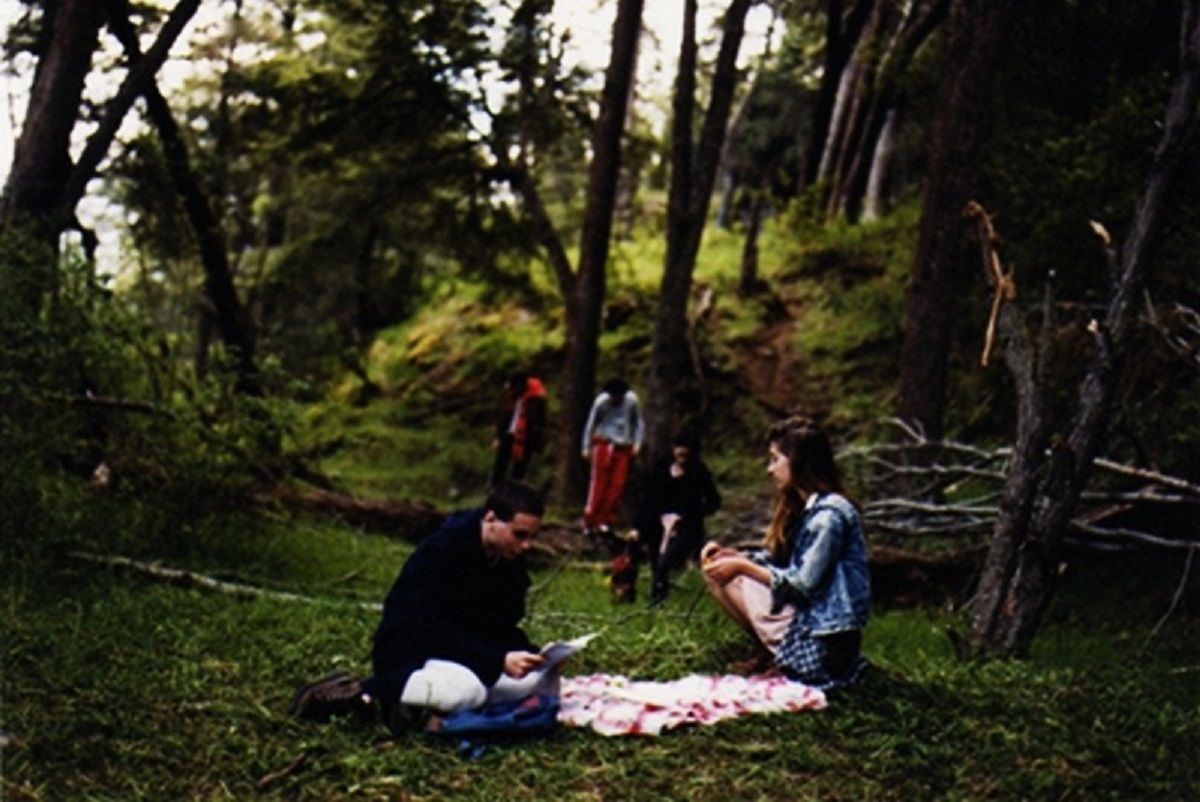Argentina/France. 2012.
Crew
Director/Screenplay – Jazmin Lopez, Producers – Benjamin Domenech & Santiago Gallelli, Photography – Matias Mesa, Music – Julia Huberman. Production Company – Rei Cine/Petit Film/Lemming Film/Viking Film/Cepa Audiovisual/Arte/Cofinova 6.
Cast
Julia Volpato (Isa), Pablo Sigal (Arturo), Macarena del Corro (Sofia), Diego Veghezzi (Felix), Tomas Mackinlay (Niki)
Plot
Five youths wander through the woods lost. From a tape recording, they realise that they have been involved in a car crash.
Leones is a debut feature from 28 year-old Argentinean director Jazmin Lopez. Lopez is better known as an artist and her work has displayed at a number of international festivals and biennales. Some of Lopez’s work has also been in video installations – she currently teaches at the University of Cinema in Buenos Aires. She had previously made three short films.
Leones premiered at the 2012 Venice International Film Festival and ended up earning some international festival play. This seems the case of a film being hailed by a festival/arts crowd (no doubt due to Jazmin Lopez’s reputation as an artist) when if the film had not had the perception of an arts label attached to it, it would almost certainly have attained no notice at all.
Jazmin Lopez’s own statement calls Leones a film about the abstract quality of death, the evanescence of youth. In truth, Leones is a film that seems to be about nothing at all. Most of it consists of five teenagers wandering through the woods. They talk about various things but seem to have very little to say to one another – you reach the end of the film struggling to remember anything they were actually talking about throughout. We learn almost nothing about them except their names. There are various cryptic clues about why they are there, which all come together in a surprise ending. Alas, the surprise is one that is obvious over an hour beforehand to anybody who has watched enough genre films of a certain variety – see next paragraph if you don’t mind the surprise being spoiled.

[PLOT SPOILERS]. Of course, what becomes apparent is that Leones is simply another variation on the deathdream fantasy. This has a long history going back to the Ambrose Bierce story An Incident at Owl Creek Bridge (1891) wherein a soldier falls from the hangman’s noose and travels home only to discover that he is dead. Films have been conducting an enormous number of variations on this with the likes of An Occurrence at Owl Creek Bridge (1961), Carnival of Souls (1962), Sole Survivor (1970), Haunts of the Very Rich (1972), Seizure/Queen of Evil (1974), The Survivor (1981), Sole Survivor (1983), Siesta (1987), Jacob’s Ladder (1990), Final Approach (1991), A Pure Formality (1994) and The Others (2001). The film that made this surprise twist into a big talking point was The Sixth Sense (1999), which in turn spawned a great many copies with the likes off Soul Survivors (2001), Dead End (2003), I Pass for Human (2004), Hidden (2005), Reeker (2005), Stay (2005), The Escapist (2008), Farmhouse (2008), Passengers (2008), The Haunting of Winchester House (2009), Someone’s Knocking at the Door (2009), The Last Seven (2010), Wound (2010), Jack the Reaper (2011), A Fish (2012), 7500 (2014), The Abandoned/The Confines (2015), Shadow People (2016) and Alone (2017), plus the finale of tv’s Lost (2004-10). Indeed, the basic plot idea of Leones – young people wander around the woods then discover they are all dead – has been done before in the low-budget New Zealand film Hidden (2005), which is one of the worst of these deathdream films.
Almost all of the films using the deathdream twist in the last few years have been greeted with accusations of being tired and hackneyed. Leones seems to have escaped this solely by dint of the fact that it is a film being watched by arthouse/festival audiences who seem blissfully unaware of how overused such an idea has become.
Trailer here


